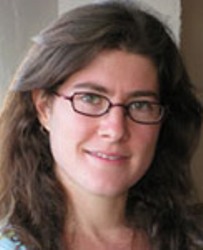Hadas Kress-Gazit of Cornell, a robotics researcher is pursuing the five-year National Science Foundation Expeditions in Computing project worth $10 M to expedite and simplify computer programming.
 Kress-Gazit
Kress-Gazit
The project is known as Expeditions in Computer Augmented Program Engineering (ExCAPE). It is a combined initiative directed by the University of Pennsylvania. Several institutions and industry partners also form a part of this project that includes various educational outreach programs for future computer scientists. Around $500,000 was granted to Cornell on behalf of this project.
Previously, programmers used to carry out manuscript method of coding. An integrated toolkit is being developed by the researchers for automated program synthesis. The programmers can now use such a toolkit to code the programs with the help of a computer. Based on the recent innovations and developments in computer science, the team intends to enable programmers to stipulate the program strategy with the help of tools for coding.
Cornell's Autonomous Systems Lab’s Co-director, Kress-Gazit is an expert in developing methods that enable translation of high-level instructions into robot control, which is one of the efforts in ExCAPE.
University of Pennsylvania’s computer scientist and Project leader Rajeev Alur says that even a robotic car can be programmed to parallel park itself automatically. This needs specific coding for basic solution strategies. The strategy for parallel parking is related to a series of basic maneuvers such as positioning in front of the spot, straight backing up, turning and straightening out. Although this strategy needs to be upgraded, computers can arrive with more intelligent solutions rather than human programmers and drivers.